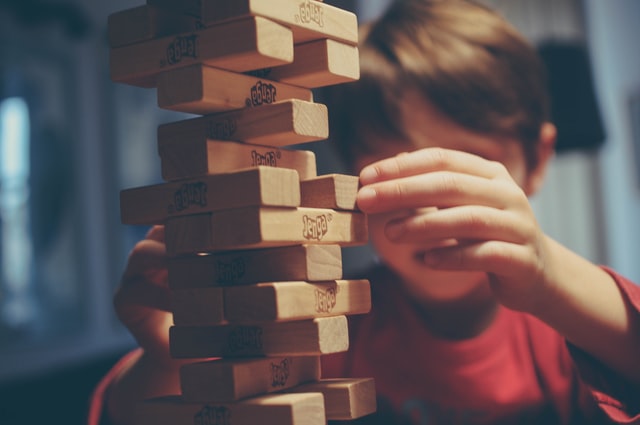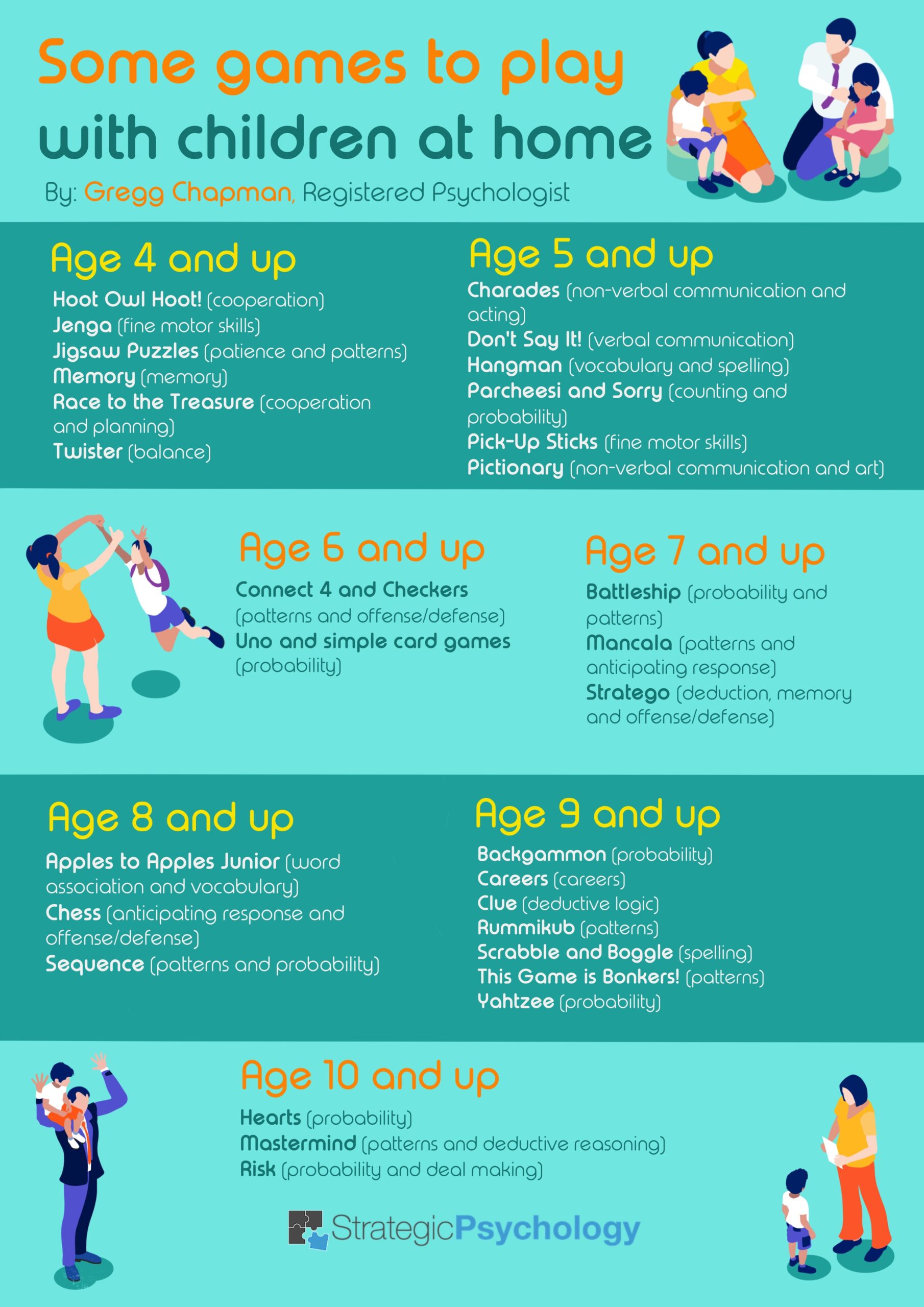Playing games with your children at home offers numerous benefits. First and foremost, it creates a strong bond and strengthens the parent-child relationship. It provides an opportunity for quality time together, fostering communication and understanding. Games stimulate cognitive development by enhancing problem-solving skills, critical thinking, and strategic planning. They promote creativity and imagination, allowing children to explore new ideas and concepts in a fun and engaging way. Games also teach important life skills such as teamwork, sportsmanship, and resilience. Moreover, playing games at home provides a safe and controlled environment for children to learn and grow, while creating lasting memories and joyful experiences for the whole family.
Age 4 and up:
- Hoot Owl Hoot! (cooperation)
- Jenga (fine motor skills)
- Jigsaw puzzles (patience and patterns)
- Memory (memory)
- Race to the Treasure (cooperation and planning)
- Twister (balance)
Age 5 and up:
- Charades (non-verbal communication and acting)
- Don’t Say It! (verbal communication)
- Hangman (vocabulary and spelling)
- Parcheesi and Sorry (counting and probability)
- Pick-Up Sticks (fine motor skills)
- Pictionary (non-verbal communication and art)
Age 6 and up:
- Connect 4 (patterns and offense /defense)
- Checkers (patterns and offense/defense)
- Uno and simple card games (probability)
Age 7 and up:
- Battleship (probability and patterns)
- Mancala, a “count and capture” game popular in Africa and Asia (patterns and anticipating response)
- Stratego (deduction, memory and offense/defense)
Age 8 and up:
- Apples to Apples Junior (word association and vocabulary)
- Chess (anticipating response and offense/defense)
- Sequence (patterns and probability)
Age 9 and up:
- Backgammon (probability)
- Careers (careers)
- Clue (deductive logic)
- Rummikub (patterns, especially if you play off others, like in Scrabble)
- Scrabble and Boggle (spelling)
- This Game is Bonkers! (patterns)
- Yahtzee (probability)
Age 10 and up:
- Hearts (probability)
- Mastermind (patterns and deductive reasoning)
- Risk (probability and deal making)
By Gregg Chapman, Registered Psychologist
Click on image to download and print

